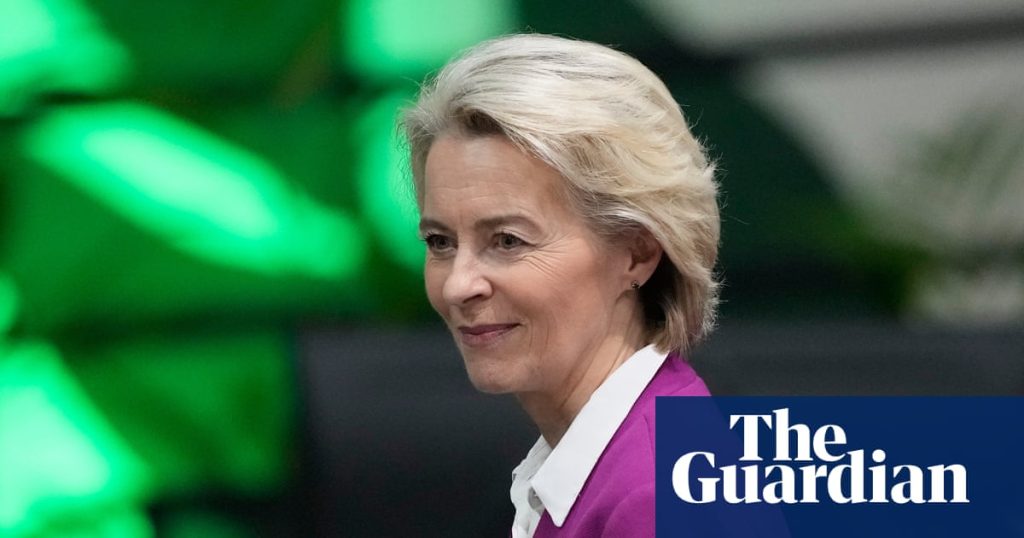Listen to the article
European Union to Launch Anti-Disinformation Hub Amid Escalating Threats
The European Commission is set to establish a Centre for Democratic Resilience to combat disinformation campaigns orchestrated by Russia and other authoritarian regimes, according to a leaked document obtained ahead of its official release on November 12.
The proposed center represents the cornerstone of Commission President Ursula von der Leyen’s “democracy shield” initiative, which she highlighted during her campaign for a second term before the 2024 European elections. Von der Leyen first announced the concept in September during an address to Members of the European Parliament.
According to the draft document, the center would serve as a collaborative hub where expertise from across EU member states and candidate countries could be consolidated to counter foreign information manipulation. “In addition to its brutal war of aggression against Ukraine, Russia is also escalating hybrid attacks, waging a battle of influence against Europe,” the document states. “By spreading deceitful narratives, sometimes including the manipulation and falsification of historical facts, they try to erode trust in democratic systems.”
The EU’s foreign service has documented numerous instances of Russian disinformation campaigns, with the “Doppelganger” operation being particularly notable. Active since 2022, this campaign created convincing imitations of established media outlets including Germany’s Die Welt, France’s Le Point, Italy’s La Stampa, and Poland’s Polskie Radio. These fraudulent sites published fabricated articles aimed at discrediting European politicians and undermining public support for Ukrainian refugees and the Ukrainian cause in general.
China has emerged as another significant threat in the disinformation landscape. The EU’s diplomatic service alleges that Beijing employs private PR firms and social media influencers “to create, amplify and launder content aligned with China’s political interests worldwide.” In 2024, researchers at Citizen Lab identified 123 websites operating from China that posed as legitimate news sources while disseminating pro-Beijing misinformation across 30 countries in Europe, Asia, and Latin America.
Recent events have highlighted the tangible impact of foreign interference on democratic processes within Europe. Romania became the first EU member state to nullify an election after intelligence reports revealed an alleged Russian campaign involving cyber-attacks on electoral systems and social media manipulation favoring an ultranationalist candidate. Similarly, Moldova, an EU candidate country, has reported Russian interference in its elections, including alleged vote-buying schemes and propaganda campaigns.
The proposed center would function as an information-sharing platform for EU institutions and member states, providing early warnings about potential threats and raising public awareness regarding foreign governments’ attempts to manipulate information. Participation would be voluntary for EU member states and candidate countries, with the Commission suggesting that “like-minded partners” could also be involved—potentially opening the door for UK participation despite its departure from the bloc.
Additional components of the broader “democracy shield” plan include the establishment of an independent network of fact-checkers to guard against misinformation, particularly during elections, health emergencies, and natural disasters. Brussels also envisions creating a voluntary network of internet influencers to increase awareness about EU democratic and internet standards.
The initiative comes at a critical time when democratic institutions across Europe face increasingly sophisticated foreign interference attempts. By centralizing expertise and response capabilities, the EU aims to strengthen its collective resilience against information warfare techniques that have become a primary tool for adversaries seeking to undermine European unity and democratic values.
As disinformation techniques continue to evolve with advancing technology, the success of this initiative may ultimately depend on member states’ willingness to participate and coordinate their responses to what Brussels clearly views as a shared transnational threat to European democracy.
Fact Checker
Verify the accuracy of this article using The Disinformation Commission analysis and real-time sources.




14 Comments
The EU is right to be concerned about the threat of foreign disinformation campaigns. Establishing a dedicated hub to consolidate expertise and coordinate a response is a sensible approach.
I’m curious to see how the proposed ‘Centre for Democratic Resilience’ will work in practice. Countering state-sponsored disinformation is complex, and will require robust fact-checking, public awareness campaigns, and international cooperation.
Yes, the details of the center’s mandate and operations will be important. Maintaining transparency and upholding democratic principles will be key.
Establishing a dedicated EU hub to tackle foreign disinformation threats is a sensible move. However, the success of this initiative will depend on its ability to rapidly identify and respond to evolving tactics.
While I support efforts to counter disinformation, I have some concerns about the potential for overreach or politicization of the EU’s anti-disinformation center. Careful oversight and a commitment to objectivity will be critical.
Those are valid concerns. Maintaining the center’s independence and impartiality will be crucial to its credibility and effectiveness.
The rise of state-sponsored disinformation campaigns is a serious challenge for democracies. I hope the EU’s new anti-disinformation center can help strengthen resilience and counter malign influence operations.
Agreed. Protecting democratic discourse from foreign interference should be a top priority.
Combating foreign disinformation is a complex challenge, but an important one for safeguarding democratic values and institutions. The EU’s proposed center could play a vital role if it is properly resourced and empowered.
This is a concerning development, but a necessary step to protect European democracies from foreign disinformation. Consolidating anti-disinformation expertise across the EU could be an effective way to combat these hybrid threats.
Agreed. Russia’s information warfare tactics are a serious challenge that requires a coordinated response.
While the goal of the EU’s proposed anti-disinformation center is laudable, I have some questions about its potential scope and effectiveness. Clearly defining its mandate and ensuring transparency will be crucial.
I hope this new EU anti-disinformation center will be effective in exposing and countering the manipulative tactics used by Russia and other authoritarian regimes. Protecting the integrity of democratic discourse is crucial.
Agreed. Disinformation is a serious threat that requires a sustained, multi-faceted effort to address.